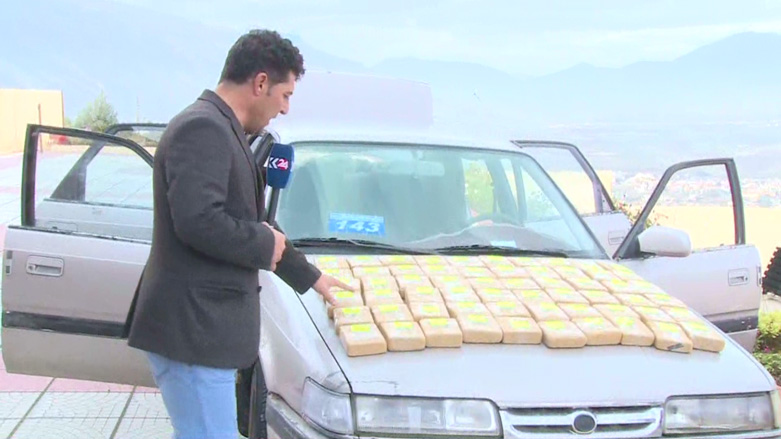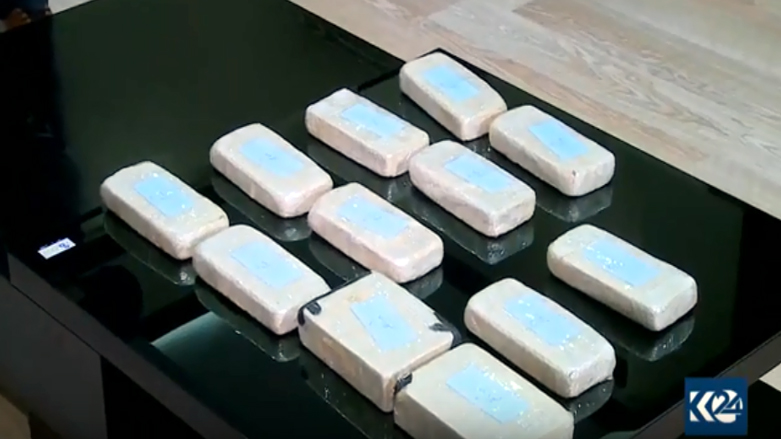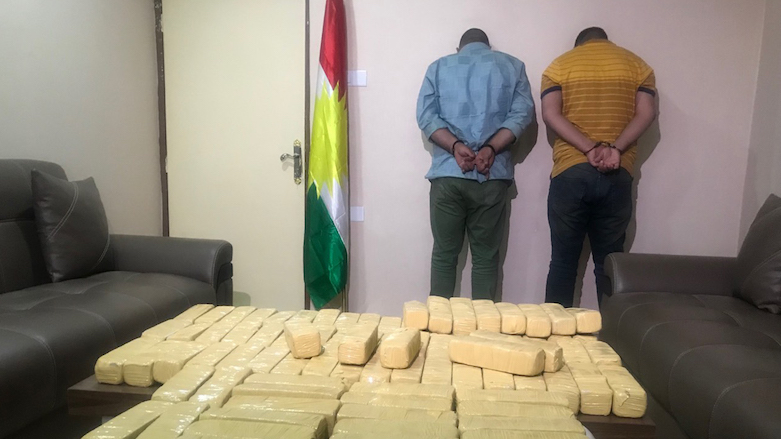Iraqi police: 80 percent of illegal drugs in Basra come from Iran

ERBIL (Kurdistan 24) – An Iraqi police chief on Saturday accused Iran of being the largest source of illegal drugs to Basra, a province officials say has been embroiled in a three-year drug epidemic.
"The drugs that come to Basra, 80 percent of them are from the Iranian side," the province's police chief Rashid Flaih said at a press conference, adding that this includes all types of drugs.
Most notable among them, he said, was "crystal." It should be noted that there is often confusion about the term "crystal" in the region since it is commonly used as the local name for two different highly-addictive drugs. One is methamphetamine, known in much of the world as crystal meth, but it can also refer to a high-purity street-level heroin, sometimes called Kerack.
The statement comes a week after local police began an extensive security crackdown on drug traffickers in a city that has seen months of mass protest this year against the poor standard of living, despite it being a significant source of the country's oil revenue.
Flaih added that most of the other illicit pharmaceutical trade in the province comes in the form of pills that are also brought in from other countries, including Kuwait. He said that local police periodically launch "major operations" to deter smugglers along the nearly 100-kilometer long border with its eastern neighbor.
"We will work hard to secure these borders through Basra Operations Command, Border Forces Command, as well as the police and the naval forces," he stated.
The governor of Basra, As'ad al-'Aidani, agreed to a police request to build a "big sanatorium," or clinic aimed at isolating drug users, Flaih continued. He also urged for the creation of new legal provisions permitting the death penalty to be imposed on convicted "major traffickers," although the Iraqi Penal Code already allows for this.
In recent years, Iraqi authorities have arrested many Iranians and Iraqis for smuggling drugs into Iraq. There are no official statistics on the number of drug-related detainees are in Iraqi jails, nor are there figures on the total number of substance abusers.
The Iraqi Human Rights Commission has previously said the country had become a "market" for the sale and abuse of drugs, especially among young people.
Editing by John J. Catherine



